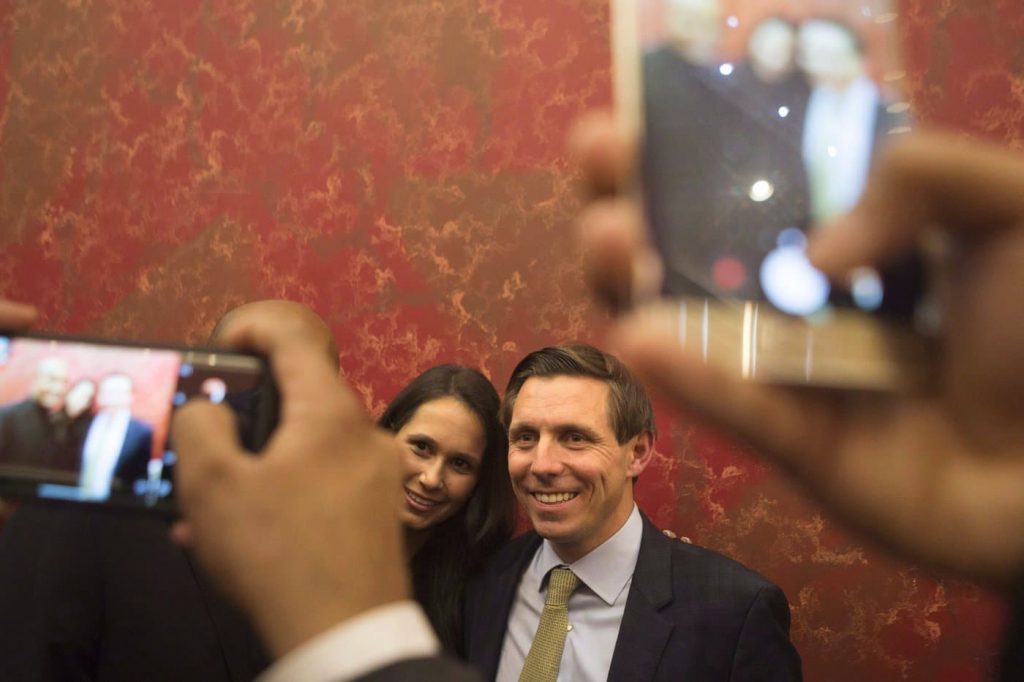Patrick Brown launches bid for federal Conservative party leadership

Patrick Brown has launched his bid to become the next leader of the Conservative Party of Canada. He is the fifth candidate to enter the leadership race, which includes former federal Progressive Conservative leader Jean Charest and Ottawa-area MP Pierre Poilievre, the perceived front-runner. Rookie Ontario MP Leslyn Lewis and Independent Ontario MPP Roman Baber are also running. Another potential candidate, Peter MacKay – who finished runner-up to Erin O’Toole in the 2020 leadership race – announced in a video message posted to social media on Saturday that he would not be running this time. The 43-year-old served as a city councillor in Barrie, Ont., before making the leap to federal politics in 2006, becoming MP for the region in former Conservative prime minister Stephen Harper’s government. In 2015, the three-term MP who had served primarily as a backbencher, elected to leave federal politics in order to run for the leadership of the Ontario PC party, where he surprised many by defeating front-runner Christine Elliott. Then, months before the 2018 provincial election, allegations of sexual misconduct were levied against Brown by CTV News. Brown vehemently denied the accusations which have never been proven in court. After initially promising to stay in the job, he resigned the next day and within weeks was kicked out of caucus. Brown returned to the political arena later that year, becoming the mayor of Brampton. In advance of his announcement Sunday, Brown settled his $8 million defamation lawsuit against CTV, clearing a dark cloud that had threatened to hang over his campaign. While no money is believed to have changed hands, the network has acknowledged details of its 2018 report were “factually incorrect and required correction.” Known within the party as a hardworking organizer, Brown’s political roots in Brampton will be key for federal Conservatives who know they need to grow their support in the seat-rich Greater Toronto Area if they hope to form the next government. In terms of what Brown might bring to the race, he recently mounted a strong rejection of Bill 21, a controversial secularism law in Quebec that prohibits public servants in positions of authority from wearing religious symbols on the job. As Brampton’s mayor, Brown spearheaded a plan for cities to pledge money to help fund a legal challenge of the law. His vocal opposition of Bill 21 comes as the party also knows it has to grow its support with new immigrants and cultural communities, who call the country’s largest cities and suburbs home. Brown enters the Conservative leadership race with a track record on another dicey issue for the party: carbon pricing. He has pledged his support for the mechanism. Many party members reject it as an ineffective “tax,” including Poilievre, who has vowed to repeal the federal consumer carbon price and attacked Brown over his support of the policy. Brown recently penned a letter asking Deputy Prime Minister and Finance Minister Chrystia Freeland to forgo a planned increase for April 1, citing the price of gas and other affordability issues. Candidates have until April 19 to enter the race and until June 3 to submit membership applications. The new leader will be elected Sept. 10.
Read original article here.
Written by: John Marchesan

Facebook Comments